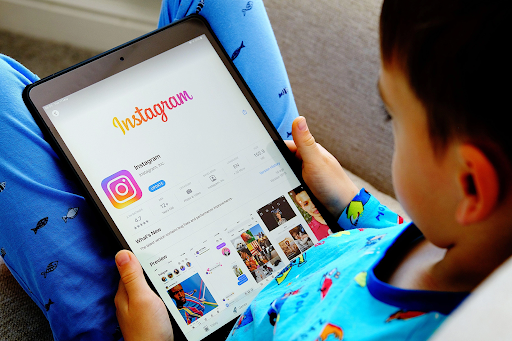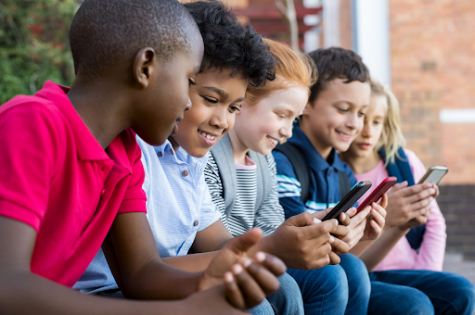Instagram for Kids: Has This Generation Gone Too Far?

A young child downloading Instagram Via: Alamy Stock
The first glimpse of social media was seen in the 1990s after Steve Jobs created the iPhone. Social media was created to discover new friends and safely meet more people than in real life. Over the past few generations, people have seen various pros and cons with new apps. However, people across all ages have been able to find new interests, hobbies, mentors, and movements that they can become a part. Overall, the creators did indeed accomplish their goal of connecting people worldwide; however, it isn’t as safe as they may have hoped. There has been an increase in child predators and inappropriate content on social media that has been harmful to some, if not all, ages. As a result, some companies/creators have been trying to put up safety restrictions/boundaries that may help.
After being accused of having harmful platforms for children, Facebook will be introducing “Instagram for Kids”; an app that only allows certain ages to join. Their main goal is to keep out inappropriate content or people who disrupt their daily scrolling fun. It includes several features, including “nudging” teens if they repeatedly look at the same content that’s not good for their well-being.
Will Kramer (11) shares whether or not this new app will achieve this goal: “I think it depends on how much stuff they are actually regulating, because even if it is an ‘Instagram for Kids,’ they still want to have traffic on the platform…as much as they say it will be regulated, it’s really not.”
However, The Menlo Park, Calif.-based Facebook is also planning to introduce new controls for the adults on an optional basis so parents or guardians can supervise what their teens are doing online. Matthew Mejia (12) shares if he would allow this app as a parent: “Yes, because I feel like it would be safer than regular Instagram… there are cons to it, but I think it’s a good idea.” Many people have contrasting views on this situation, enough that parents are willing to hire lawyers for their cause.
Facebook announced late last month that it was pausing work on its Instagram for Kids project. Critics say the plan lacks details, and they are skeptical that the new features would be practical. Indeed, focusing only on the most apparent abuses ignores the other harms that might come from social media — harms we still don’t fully understand. The attorney’s general refers to research about the threat to children’s “physical, emotional and mental well-being.” They have been charged with ill intentions, with others suggesting this is a business ploy like any other. Will Kramer (11) says, “It’s pretty much advertising like ‘hey, here are a bunch of kids who are on this one platform, that they’re already known to be addicted to’…child predators have immediate access.” No one knows when they will continue their launch, but the project would be terminated if it were up to many parents.
With this idea of new social media apps for younger and younger ages, many wonder how this will begin to affect future generations. Social media use has skyrocketed over the past decade and a half. Whereas only five percent of adults in the United States reported using a social media platform in 2005, that number is now around 70 percent. One primary concern is whether time spent on social media is eating away at our face-to-face time, a phenomenon known as social displacement. Many parents are worried that the earlier children start on social media and use technology, the less likely they will excel at face-to-face interactions. However, many say it is inevitable, so some platforms are already being proactive is a good start. Facebook was not specific about when they were going to continue their launch of “Instagram for Kids.” Still, whatever they decide, I hope that it not only benefits the kids of this generation but generations to come.


Abby is a senior, and this is her first year in journalism. She enjoys writing, playing sports, and singing in her free time. She is excited for the football...


